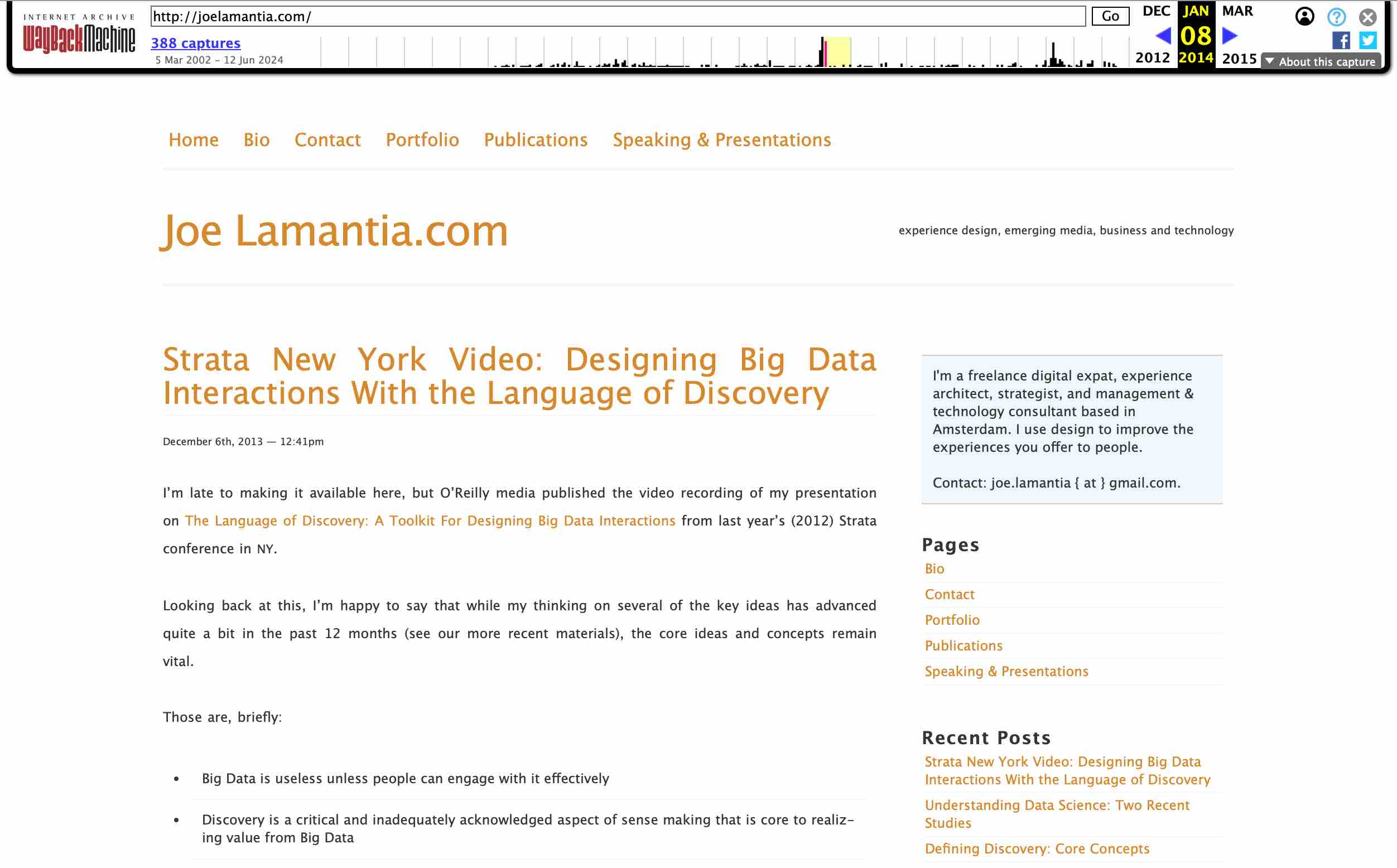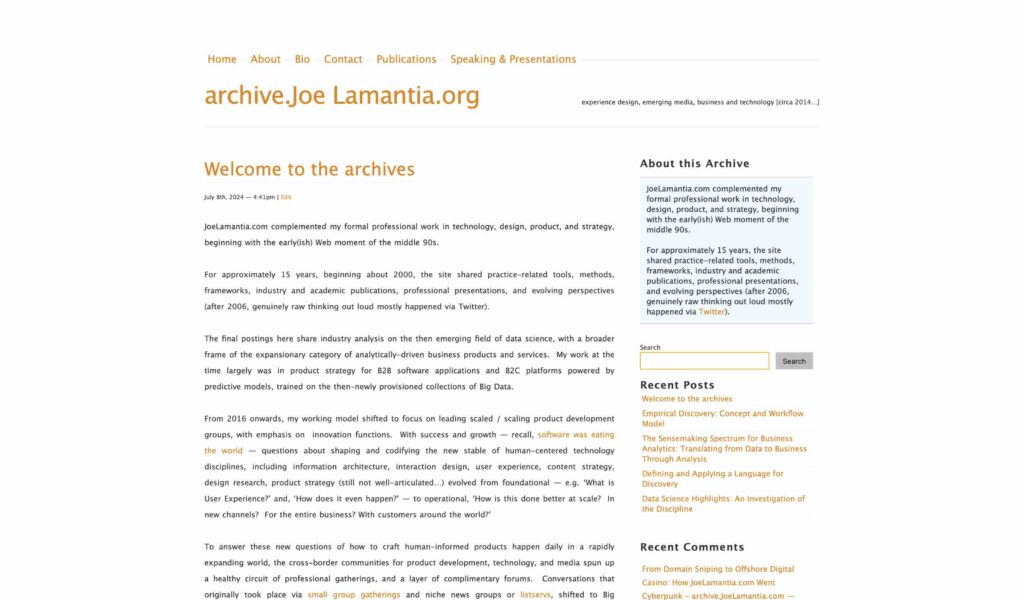In 1995, Bruce Sterling and Rudy Rucker announced the Dead Media project, looking ahead (after a bit less than 5 years of public Websites) to the inevitable moment when the Web itself would become a dead medium.
Think of it this way. How long will it be before the much-touted World Wide Web interface is itself a dead medium? And what will become of all those billions of thoughts, words, images and expressions poured onto the Internet? Won’t they vanish just like the vile lacquered smoke from a burning pile of junked Victrolas? As a net.person, doesn’t this stark realization fill you with a certain deep misgiving, a peculiarly postmodern remorse, an almost Heian Japanese sense of the pathos of lost things? If it doesn’t, why doesn’t it? It ought to.
Bruce Sterling – Dead Media Project
Brewster Kahle launched the Internet Archive year later in 1996. As Kahle recounted in 2021, the archive “…started by archiving the most transient of media, which was the World Wide Web’s pages.” and has grown to include the digital archives of a small Caribbean nation.

In addition to a few moments of nostalgia — I remembered watching the original airing of these countdowns (on actual cable television, no less) — just three minutes of viewing one recording offered several unexpected rewards. I was inspired to share the videos for Devo’s Satisfaction and Weird Al’s Dare to Be Stupid with my kids, as examples of how interpretation and satire (they’re not yet at the stage where appropriation is a meaningful concept) are powerful creative methods with a very long history, that are also fun to practice – as they see peers do every day in their own new digital environments. It demonstrated the complete new media lifecycle, showcasing the reality that what’s happening on TikTok right now likely appeared on MTV 40 years ago, which — when MTV was the new new thing — was itself a fantastic example of how ‘the future composts the past‘. I felt prompted to get together with an old friend, thanks to the spotlight on Wall of Voodoo’s Mexican Radio – a meme shared with high school friends, before memes became memes.
Finally, in one of those instances of retrospective cultural insight clearly signaling Jim Cramer on Mad Money is Dr. Demento’s Wall Street alter ego (Ok – this might be a stretch. But – just watch for a few minutes – there are a whole host of parallels – and they’re both totally lifting off of The Wizard of Oz…)

Having this kind of public, open, and largely free archiving infrastructure built into your digital environment is also useful as a form of insurance for being a ‘net.person‘ as Sterling was referring to in the Dead Media manifesto: mature digital ecosystems like the algorithmic Web of the 2010’s naturally include predation, parasitism, and other evolutionary dynamics, that can lead to the hijacking of your named .com, and it’s conversion into an unlicensed offshore crypto casino.
Thankfully, the Internet Archive’s cumulative snapshots of my original .com, running back to the early 2000’s, made it possible to rebuild and publish Archive.joelamantia.org. And the umbrella domain JoeLamantia.org, is worth several orders of magnitude less than its .com predecessor, just by virtue of the ambiguous / ambivalent (if you appreciated the reference to appropriation, then you’d probably say ‘intentionally undetermined’) .org extension. Maintaining it as a .org should make future hijacking (even) less likely. This is probably as it should have been from the beginning, given the site’s historically non-commercial purpose and focus.

Leave a Reply